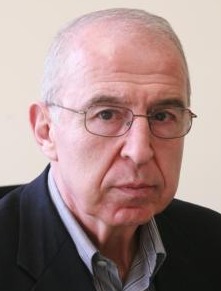Muhsin Harakeh receives Lise Meitner Prize

Prof. Muhsin Harakeh of the Faculty of Science and Engineering (University of Groningen ) has won the 2024 Lise Meitner Prize of the European Physical Society (EPS). He receives the prize Together with Prof. Achim Richter (Technical University of Darmstadt, Germany) for their work in the field of nuclear physics.
The Lise Meitner Prize is given every two years for outstanding work in the fields of experimental, theoretical or applied nuclear science.
Prof. Harakeh and Prof. Richter have been awarded the prize for their seminal contributions to the discovery and investigation of collective modes in atomic nuclei, including the Isoscalar Giant Monopole and Dipole Resonances and the "Scissors Mode”, and the role of the isospin degree of freedom in nuclear excitations. Their work has also driven significant methodological advancements, such as zero-degree measurement techniques and the development of multi-turn superconducting linear accelerators.
The prize will be awarded during the 6th European Nuclear Physics Conference on 22-26 September (EuNPC 2025) in Caen (France), where the winners will give a talk on their research.
Read more
Lise Meitner Prize 2024 (announcement on the EPS website).
More news
-
06 January 2026
Getting to grips with the workhorses of our body
